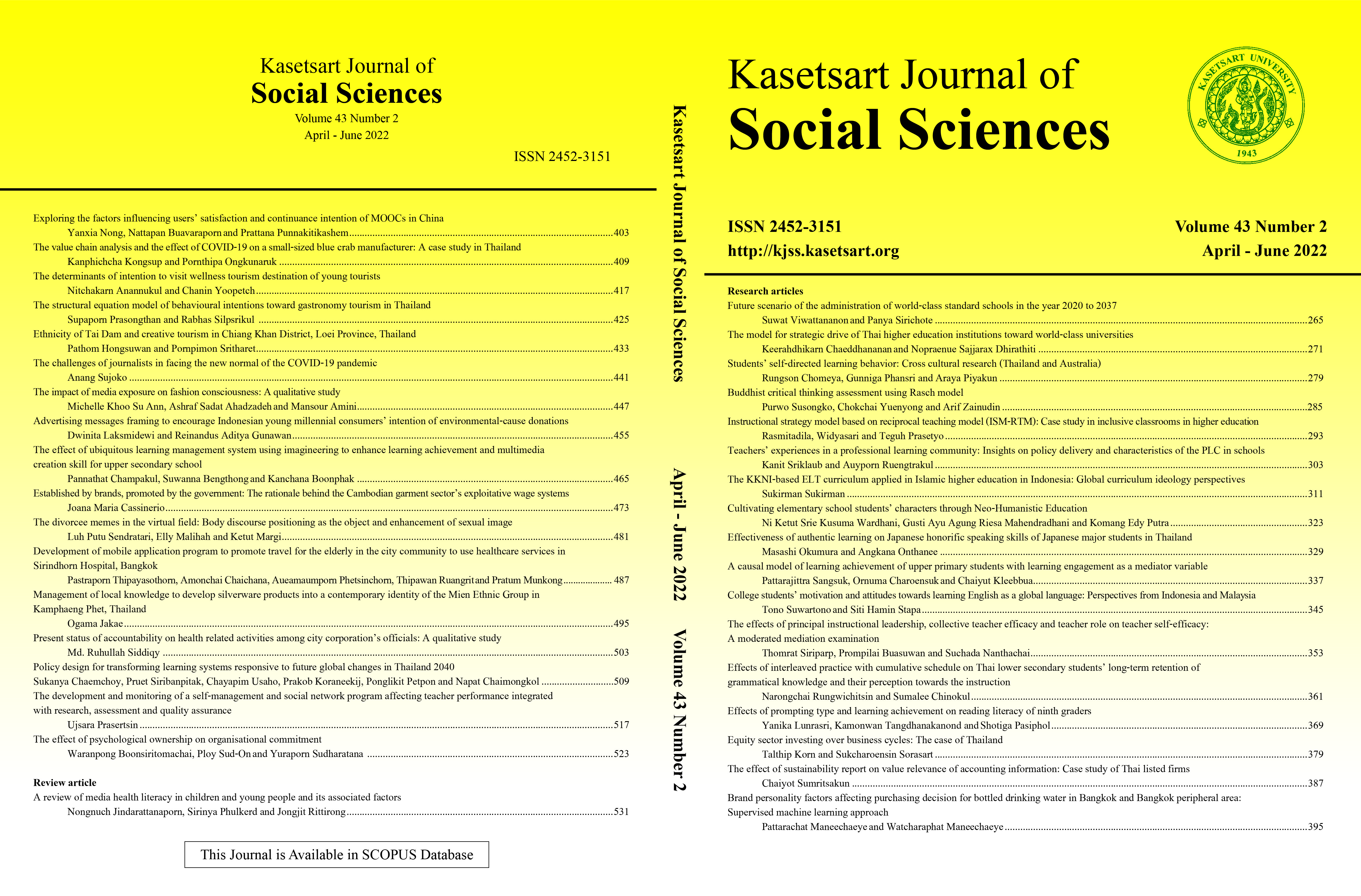Instructional strategy model based on reciprocal teaching model (ISM-RTM): Case study in inclusive classrooms in higher education
คำสำคัญ:
higher education, inclusive classroom, instructional strategy, reciprocal teachingบทคัดย่อ
Instructional strategies in inclusive classrooms in higher education have not become an essential concern for lecturers who teach in inclusive classrooms. During this time, instruction has not accommodated all students’ needs and competencies with various characteristics and learning styles. This research aimed to identify students’ opinions about implementing the instructional strategy model based on the reciprocal teaching model (ISM-RTM) in inclusive classrooms in the university. Data were gathered using classroom observations and face-to-face interviews with 24 teacher students (22 females; 2 males), consisting of 22 regular students (RS) and 2 students with special needs (SSNs). Data analysis used a qualitative analysis model with three steps. The study results revealed that the ISM-RTM could achieve competency, namely, develop emotional skills, cognitive skills, and social skills in all students. In conclusion, the implementation of ISM-RTM was suitable for instruction in inclusive classrooms with the different characteristics, learning styles and specificity of students in higher education
ดาวน์โหลด
เผยแพร่แล้ว
รูปแบบการอ้างอิง
ฉบับ
ประเภทบทความ
สัญญาอนุญาต

อนุญาตภายใต้เงื่อนไข Creative Commons Attribution-NonCommercial-NoDerivatives 4.0 International License.
This is an open access article under the CC BY-NC-ND license http://creativecommons.org/licenses/by-nc-nd/4.0/










